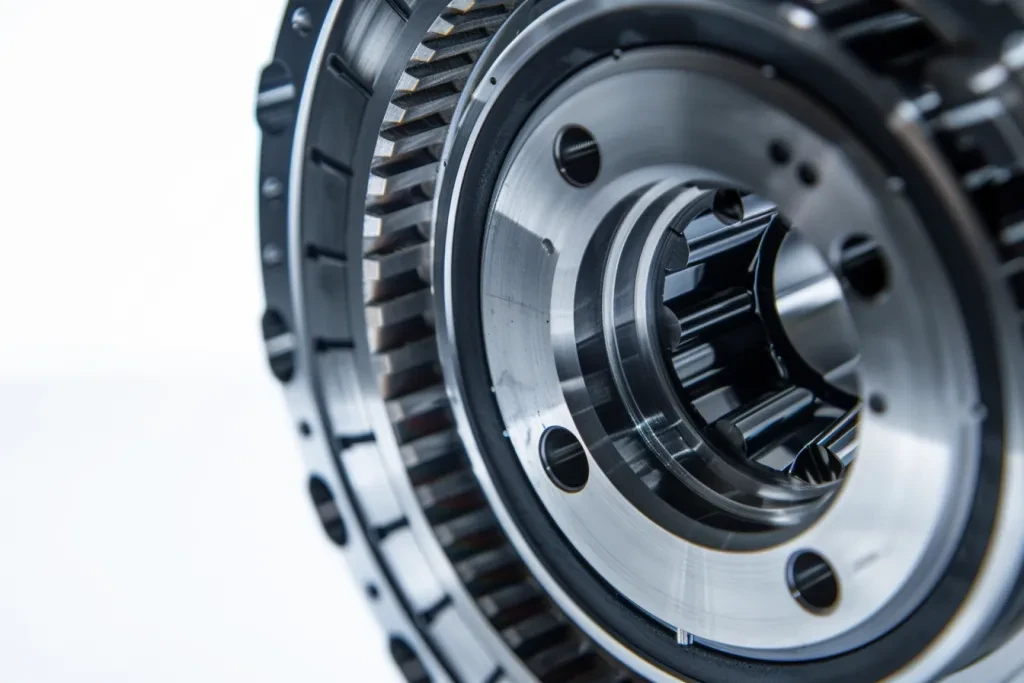The flywheel, often an unsung hero in the realm of vehicle components, plays a pivotal role in the smooth operation of your engine. This guide will delve into what a flywheel is, its functions, and how to ensure it remains in peak condition. Whether you’re a seasoned mechanic or a curious car enthusiast, understanding the flywheel’s importance is key to optimal vehicle performance.
Table of Contents:
– What is a flywheel?
– What does a flywheel do?
– How to choose a flywheel
– How long do flywheels last?
– How to replace a flywheel
– How much are flywheels?
What is a flywheel?

A flywheel is a mechanical device specifically designed to efficiently store rotational energy. It achieves this through its mass and the speed at which it rotates. Typically made from steel or aluminum, the flywheel’s weight and composition are critical to its performance. Its central location in the engine, attached to the crankshaft, allows it to serve multiple vital functions in both manual and automatic transmission vehicles.
What does a flywheel do?

The primary role of a flywheel is to smooth out the power delivery of the engine. It does this by maintaining a constant angular velocity of the crankshaft, absorbing fluctuations in engine speed due to the pistons’ intermittent firing. In manual transmission vehicles, the flywheel also plays a crucial role in the operation of the clutch system, providing a surface against which the clutch disc can be pressed to transmit power from the engine to the drivetrain. Additionally, flywheels contribute to reduced engine wear and improved fuel efficiency by stabilizing the rotational energy.
How to choose a flywheel

Selecting the right flywheel for your vehicle depends on several factors, including the type of driving you do and the performance characteristics you desire. For high-performance or racing applications, a lighter flywheel is often preferred for its ability to quickly increase engine speed. However, for everyday driving, a heavier flywheel may be more suitable due to its ability to provide a smoother ride and more consistent power delivery. Material composition also plays a role, with steel flywheels offering durability and aluminum ones providing a lighter weight option.
How long do flywheels last?

The lifespan of a flywheel can vary widely based on driving habits, the type of vehicle, and maintenance practices. Typically, a flywheel should last the life of the vehicle under normal driving conditions. However, aggressive driving, frequent towing, or poor clutch habits can significantly reduce its lifespan. Regular inspections during routine maintenance can help identify wear and tear early, potentially extending the life of your flywheel.
How to replace a flywheel

Replacing a flywheel is a complex process that generally requires professional expertise. The procedure involves removing the transmission to access the flywheel, which is bolted to the crankshaft. Once the old flywheel is removed, the new one must be installed with precision, ensuring it is perfectly aligned and torqued to the manufacturer’s specifications. This task demands a thorough understanding of your vehicle’s engine and transmission system, as well as the right tools and equipment.
How much are flywheels?

The cost of a flywheel can vary significantly based on the material, size, and type of vehicle. Generally, prices can range from a couple of hundred dollars for standard vehicles to several hundred for high-performance or specialty applications. It’s important to consider not just the cost of the flywheel itself but also the labor involved in its replacement, which can add significantly to the overall expense.
Conclusion:
The flywheel is a critical component in ensuring the smooth operation and longevity of your vehicle’s engine. Understanding its function, how to choose the right one, and recognizing when replacement is necessary can save you time and money, while ensuring your vehicle performs at its best. Whether you’re maintaining a daily driver or optimizing a high-performance car, the flywheel deserves your attention and care.




